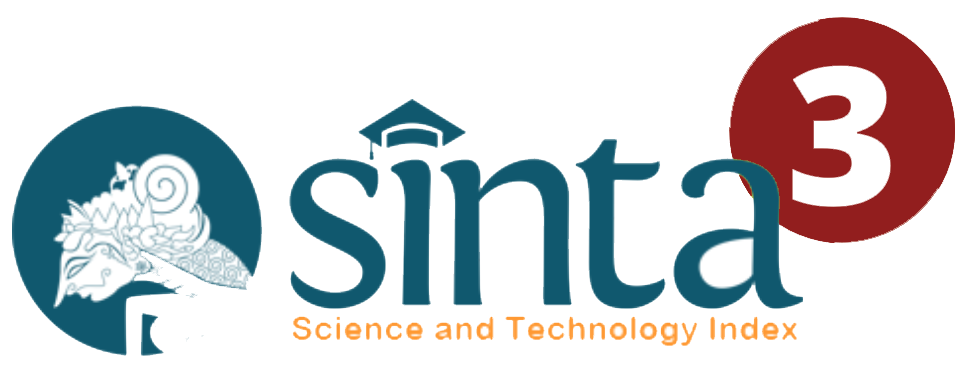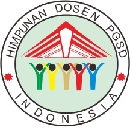Development of Maze Case Games Based on Word Walls the Theme of My Heroes in Improving Elementary School Students' Critical Thinking Ability
DOI:
https://doi.org/10.22460/pej.v7i1.3689Abstract
The role of schools and teaching staff play an important role in the era of society 5.0. especially during a pandemic, learning activities take place through online media using various supporting applications, such as zoom, google classroom, google class Meetings, and others. The use of this application media requires more insight from educators. However, in reality, currently, not all educators have sufficient information technology so learning carried out online looks monotonous and difficult for students to understand. Learning focuses more on face-to-face with zoom, the teaching materials displayed are only in the form of words or power points, the teacher's explanations are more verbal, not using applications or interactive learning media so that the reasoning and creative power of students is not well explored. The problem was recognized and based on the narrative of several teachers at SDN Panaragan 1, Bogor City when the researchers made initial observations at the school regarding the problems that existed in elementary schools. Efforts that can be made to overcome monotonous learning are interactive educational games, namely word wall-based maze games. The aim is to see an overview of the Improvement and Effectiveness of the Wordwall-Based Maze Chase Game Development in improving the critical thinking and reasoning abilities of Elementary School students/ The method used is Research and Development, namely development in learning media. The learning media development model used is analysis, design, development, implementation, and evaluation. Based on research data , maze chase is an appropriate educational game to be used as a learning medium. Based on data processing results, 93.3% of students stated that the educational games given by the teacher challenged them to fill it properly. Moreover, games are made in the form of labyrinths that challenge students to think critically and reason. Whereas 6.7% of students or a small portion stated that educational games were not challenging for them to fill properly.References
Arianto, A. S., Sulianto, J., & Azizah, M. (2019). Analisis Kemampuan Penalaran Matematis Siswa Kelas Iv Sdn Gayamsari 02 Di Kota Semarang. Jurnal Sinektik, 2(2), 136. https://doi.org/10.33061/js.v2i2.3327
Arjunaita. (2020). Pendidikan di era revolusi indiustri 5.0. Prosiding Seminar Nasional Pendidikan Program Pascasarjana Universitas PGRI Palembang, 2, 179–196.
Arsyad, M. N. (2019). Penerapan Model Pembelajaran Visualization Auditory Kinestetic (Vak) Dalam Meningkatkan Hasil Belajar Ips Siswa Smpn Moncok. Maharsi, 1(02), 1–11. https://doi.org/10.33503/maharsi.v1i02.528
Diharjo, R. F., & Utomo, D. H. (2017). PENTINGNYA KEMAMPUAN BERFIKIR KRITIS SISWA. 445–449.
Fadhilaturrahmi, Ananda, R., & Yolanda, S. (2021). Jurnal basicedu. Jurnal Basicedu, 5(3), 1683–1688.
Faiq, A. (2012). MATHEMATICS ADVENTURE GAMES BERBASIS ROLE PLAYING GAME (RPG) SEBAGAI MEDIA PEMBELAJARAN MATA PELAJARAN MATEMATIKA KELAS VI SD NEGERI JETIS 1.
Kurniawan, N. A., Saputra, R., Daulay, A. A., & Z. (2020). Implementasi Prinsip-Prinsip Merdeka Belajar Bagi Calon Konselor. Prosiding Seminar Nasional Bimbingan Dan Konseling Universitas Negeri Malang, 69–72.
Mulyana, Y. (2016). Pengantar Pembelajaran Penjas. STKIP Sebelas April Press.
Mulyati, S. (2019). Pengaruh Kemampuan Bernalar dan Penguasaan Kosakata terhadap Kemampuan Menulis Karangan Argumentasi. Diskursus: Jurnal Pendidikan Bahasa Indonesia, 1(01), 67. https://doi.org/10.30998/diskursus.v1i01.3514
Munadi, Y. (2020). Media Pembelajaran. Gaung Persada Press.
Musfiqon. (2012). Pengembangan Media dan Sumber Pembelajaran. Prestasi Pustaka Raya.
Nurani, D. (2021). Menyiapkan Pendidik Profesional Di Era Society 5.0. Direktorat Sekolah Dasar. Direktorat Jendral PAUD Dikdas Dan Dikmen. Kementrian Pendidikan, Kebudayaan, Riset Dan Teknologi. http://ditpsd.kemdikbud.go.id/artikel/detail/menyiapkan-pendidik-profesional-di-era-society-50
Putra, I. K. A. A. ., Suarsana, I. M., & Suharta, I. G. . (2020). Pengembangan Bahan Ajar Interaktif Materi Pecahan untuk Siswa SMPLB Tunarungu dengan Pendekatan Multi Representasi. Jurnal Nasional Pendidikan Teknik Informatika : JANAPATI, 9(01), 69–84.
Saputri, M. A. (2020). Penerapan Model Pembelajaran Problem Based Learning Untuk Meningkatkan Kemampuan Berfikir Kritis Siswa Kelas V Sekolah Dasar. Jurnal Pendidikan Dan Konseling (JPDK), 2(1), 92–98. https://doi.org/10.31004/jpdk.v1i2.602
Sugiyono. (2016). Metode Penelitian Pendidikan. IKAPI.
Suherman, S. (2013). Proses Bernalar Siswa Dalam Mengerjakan Soal-Soal Operasi Bilangan Dengan Soal Matematika Realistik. JIPM (Jurnal Ilmiah Pendidikan Matematika), 1(2), 1–9. https://doi.org/10.25273/jipm.v1i2.468
Sundayana, R. (2016). Media dan Alat Peraga dalam Pembelajaran Matematika. Alfabeta.
Wahyuni, S., & Usman, J. (2020). Penerapan Permainan Maze dalam Pembelajaran untuk Pengembangan Kognitif Anak di TK PKK Jalmak Desa Jalmak Kecamatan Pamekasan Kabupaten Pamekasan Jawa Timur. Kiddo: Jurnal Pendidikan Islam Anak Usia Dini, 1(2), 160–173. https://doi.org/10.19105/kiddo.v1i2.3687










